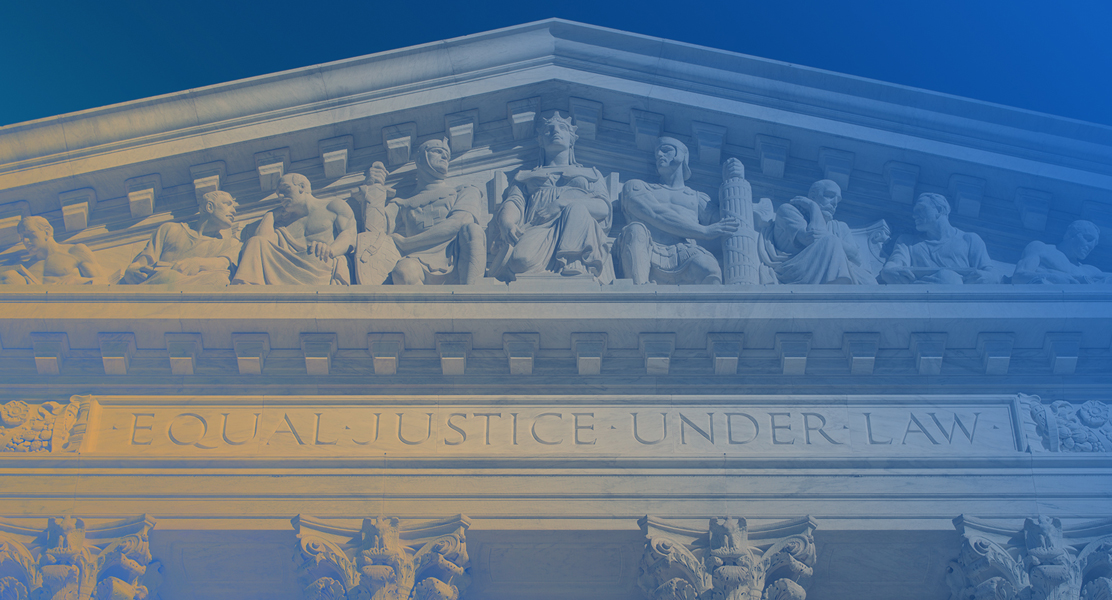Fulton v. City of Philadelphia
AT ISSUE
When faith-based groups voluntarily partner with the government to administer a government-funded program, they must work within the government’s own guidelines to ensure everyone is being served.

BJC’S POSITION
Requiring government contractors to adhere to nondiscrimination policies when performing a government function does not burden religion — instead, it protects religious freedom.
We filed a friend-of-the-court brief in the case of Fulton v. Philadelphia because nondiscrimination policies protect religious freedom for everyone. This case involves a challenge to Philadelphia’s rules for agencies that certify foster parents — the city says agencies must adhere to its nondiscrimination law in this government-funded service. That means they can’t reject prospective foster parents based on religion, sexual orientation and other protected categories.
“When faith-based groups voluntarily contract with the government to carry out the government’s duty to find safe homes for children in its custody, they must work within the government’s guidelines to ensure qualified families aren’t turned away on the basis of religion, sexual orientation or for other discriminatory reasons,” said BJC General Counsel Holly Hollman on the day the Court heard oral arguments.
“Following the government’s rules to administer government-funded programs does not mean the faith-based organization is giving up its right to speak about core beliefs or criticize government policy in other contexts.”
Faith-based groups often feel called to help others, including voluntarily partnering with the government to serve those in need.
“Thousands of religious and secular agencies across the country partner with a local, state or federal government to provide government services,” Hollman said. “Whether it is recruiting foster care parents, running food pantries or providing emergency shelter, the primary concern in providing government-funded services must be ensuring that such services are provided with integrity for public purposes and without regard to religion or other protected categories.”
STATUS
On June 27, 2021, the U.S. Supreme Court sided with Catholic Social Services in this dispute with the city of Philadelphia.
“The Court’s decision does not require religious exemptions in all future cases involving government contracts and nondiscrimination policies. That is a good thing because nondiscrimination provisions often protect religious liberty in government services,” BJC Executive Director Amanda Tyler said after the ruling. “It is disappointing that the Court rejected the city’s compelling interest in the equal treatment of prospective foster parents and foster children, particularly in the context of government contracts voluntarily entered into by religious contractors.”
From the Brief
“This is not a case about generally applicable laws regulating the general public and in so doing incidentally burdening religious exercise. Rather, it concerns voluntary contracting with a government to perform a public function on its behalf.”
“Religious institutions participating in government-administered social programs like foster care services perform an immensely valuable function. Indeed, the reality of faith-based groups playing such a role in public life is a great strength of our pluralistic society. It is precisely because these services are so important that an entity making a voluntary choice to participate in such a public program is not entitled to displace the government’s nondiscrimination laws and policies in administration of the government’s own program.”
“Hard cases can arise when a government’s important interests must be balanced against substantial burdens on religious exercise. This is not such a case. Here, the City’s nondiscrimination policy reflects not only a valid and compelling interest, but one that advances religious liberty, rather than infringes upon it. Nondiscrimination laws like the Fair Practices Ordinance offer critical protection to religious liberty in a pluralistic society, as do nondiscrimination provisions included in government contracts.”
“A prospective foster parent that is rejected for being Baptist, or for being in a same-sex marriage, or another protected characteristic, is likewise a victim of discrimination, whether or not some other agency is willing to consider them.”
“The recipient of the government funding therefore does not give up their right to speak on contrary views—or, as here, to maintain and exercise their religious views—only the right to speak or act on those views through the particular project funded by the government.”
Featured
Resources
BJC brief (PDF)
Joined by the Presiding Bishop of the Episcopal Church, the General Synod of the United Church of Christ and the Evangelical Lutheran Church in America
Court requires religious exemption but leaves many questions unanswered
By Holly Hollman for SCOTUSblog
What is going on in the fight over LGBTQ nondiscrimination and foster care?
By Holly Hollman, published in BJC’s summer 2021 magazine
BJC reacts to SCOTUS foster care ruling
News release issued June 17, 2021
PODCAST: Religion vs. Religion at the Supreme Court
Amanda Tyler and Holly Hollman review oral arguments in the case
A look at oral arguments
Latest News
BJC news release on argument day
Issued Nov. 4, 2020
BJC news release on brief
Issued August 21, 2020
BJC: Applying nonsidscrimination laws to contracting faith-based organizations protects religious liberty
BJC Latest News post by Don Byrd




